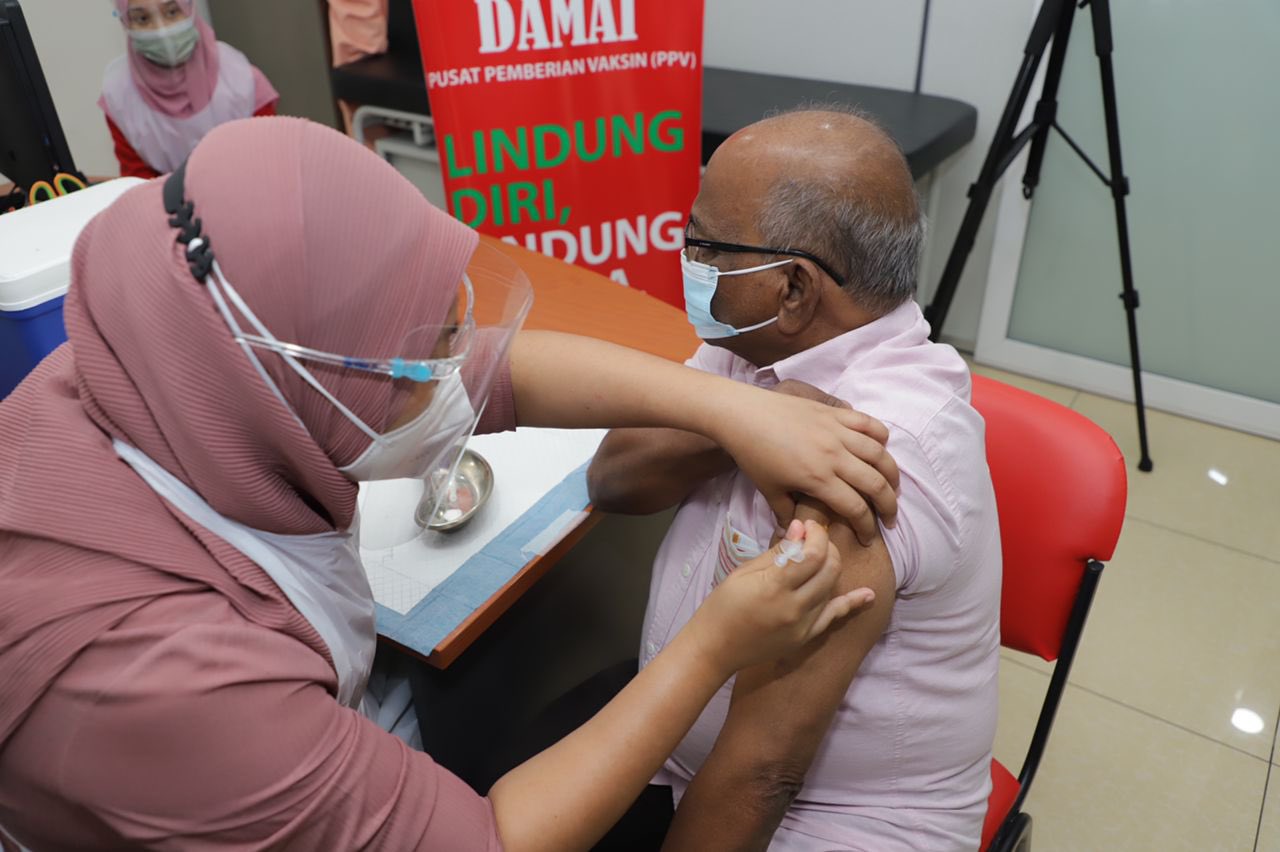Malaysia has achieved an enviably high vaccination rate, with more than 78 per cent of its total population vaccinated, comprising a cumulative total of 64,776,270 vaccine doses as of February 11, 2022 administered under the National Covid-19 Immunisation Programme (PICK, which also spans PICK-A, PICK-B and PICKids).
Following this robust vaccination programme, the peak height of 23,000 daily cases significantly decreased to 3,000 to 4,000 cases. However, in the early part of February 2022, the country recorded an uptrend related to the emergence of the Omicron strain.
Given that the public is familiar with the vaccination programme through various media channels, it is the downside of vaccination that captures their minds most, resulting in hesitancy and playing into the hands of the anti-vaxxers.
To relentlessly state that immunisation is safe, and to say it is better to be vaccinated than being infected has done little to allay their fears. It must be seen that we act accordingly, in the best interests of this small group, substantiating our arguments with facts and science, while being transparent when it comes to explaining adverse events, and to consider the current practices of developed economies only when applicable.
It behoves us to address that we are mindful of recent findings in reducing adverse events and act appropriately, and to consider that natural immunisation acquired from past infections contributes to immunity development besides vaccination.
Hence, vaccination could now be modified following facts and science as adopted in countries like Hong Kong, Italy, and others. For those with post-Covid infections, a lesser dose schedule could be optimised.
As the main characteristics of Covid-19 are still unknown, and relevant vaccines, especially the mRNA-based vaccines, are relatively new when compared to vaccines in the childhood immunisation programme (Covid-19 mass vaccination has been implemented for less than a year in Malaysia), it is imperative we scrutinise the scientific facts while being prudent about vaccination needs for infected individuals.
A longitudinal study comparing efficacy and adverse events between the two groups, viz Covid-19 positive (past infected) and Covid-19 negative (uninfected) individuals receiving the primary vaccine regime, done locally, would put the issue to rest.
Based on the principles of immunology, when a microorganism, like a virus or bacteria, is introduced into the human host, it will stimulate an immune response to thwart harm caused by microorganism generating a protective immunity.
Even if the microorganism undergoes changes in its molecular components, a term known as denaturation or is transformed into an inactive stage (inactivation) similar to some types of vaccines, this biological particle can still induce immunity.
This concept holds true for both the vaccine and natural infection due to the microorganism.
Let us look at the facts and science:
- Individuals with prior SARS-CoV-2 infection had higher antibody levels at all times compared to non-infected individuals (Ebinger JE et al. Nature Medicine 2021)
- T-cell responses were greater following vaccination in previously infected individual comparing to those who were SARS-CoV-2 naïve i.e have not been previously infected (Angyal A et al. The Lancet 2022).
- Effectiveness of previous infection against symptomatic infection with Delta variants was 88.2 per cent. Immunity from prior infection lasted up to 13 months. (Priscilla K et al. J Infectious Disease 2021)
- Increased protection in persons with previous infection, with or without vaccination, relative to vaccination alone (Leon TM et al. MMWR 2022)
Immunity gained via natural infection by the Covid-19 virus with previous two vaccinations appear to be superior, or at least equivalent to immunity induced by triple dosing vaccination.
However, refusing a booster dose may expose an individual to a higher chance of being infected, which is not a wise option.
But within these studies, it was observed that previously infected individuals experienced significant post-vaccine symptoms (reactogenicity) more frequently than in infection-naïve individuals after the first dose (Ebinger JE et al. Nature Medicine 2021).
Thus, given the current high-transmission Omicron wave and optimal protection attained after primary followed by booster vaccinations, it is tempting to consider that individuals who had previous infection and completed the primary vaccination may not require an additional booster shot.
A booster may be redundant, as scientific data suggest reactogenicity with subsequent doses.
With the breathing space of a year, it is opportune for us to conduct a local study to verify if the above published findings are applicable to Malaysia. We would have ample post-infected individuals who have been vaccinated as subjects.
It would be preferred that the study is conducted with contributions from scientists (virologists, microbial geneticists, immunologists), patient care professionals (clinical immunologists, infectious disease specialists, physicians, paediatricians), and community health practitioners (public health specialists, clinical epidemiologists), wherever relevant.
This would provide a good approach to getting a complete picture of Covid-19 mitigation for Malaysia.
The Translational Immunology Group for Education, Research and Society (TIGERS) comprises the following members:
- Dr Amir Hamzah Abdul Latiff
- Prof Dr Lokman Mohd Noh
- Prof Dr Rahim Md Noah
- Dr Adli Ali
- Prof Dr Norazmi Mohd Nor
- Assoc Prof Dr Intan Hakimah Ismail
- Prof Dr Zamberi Sekawi
- Dr Intan Juliana Abd. Hamid
- This is the personal opinion of the writer or publication and does not necessarily represent the views of CodeBlue.






